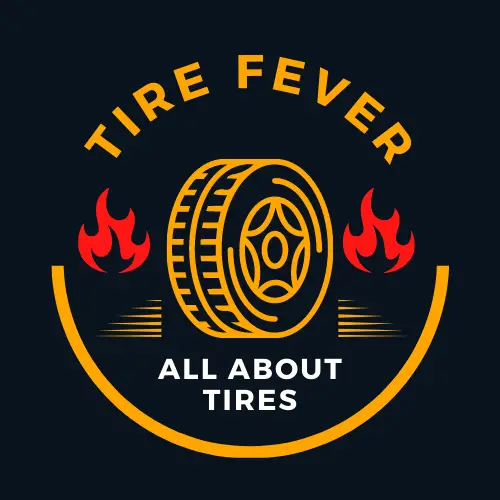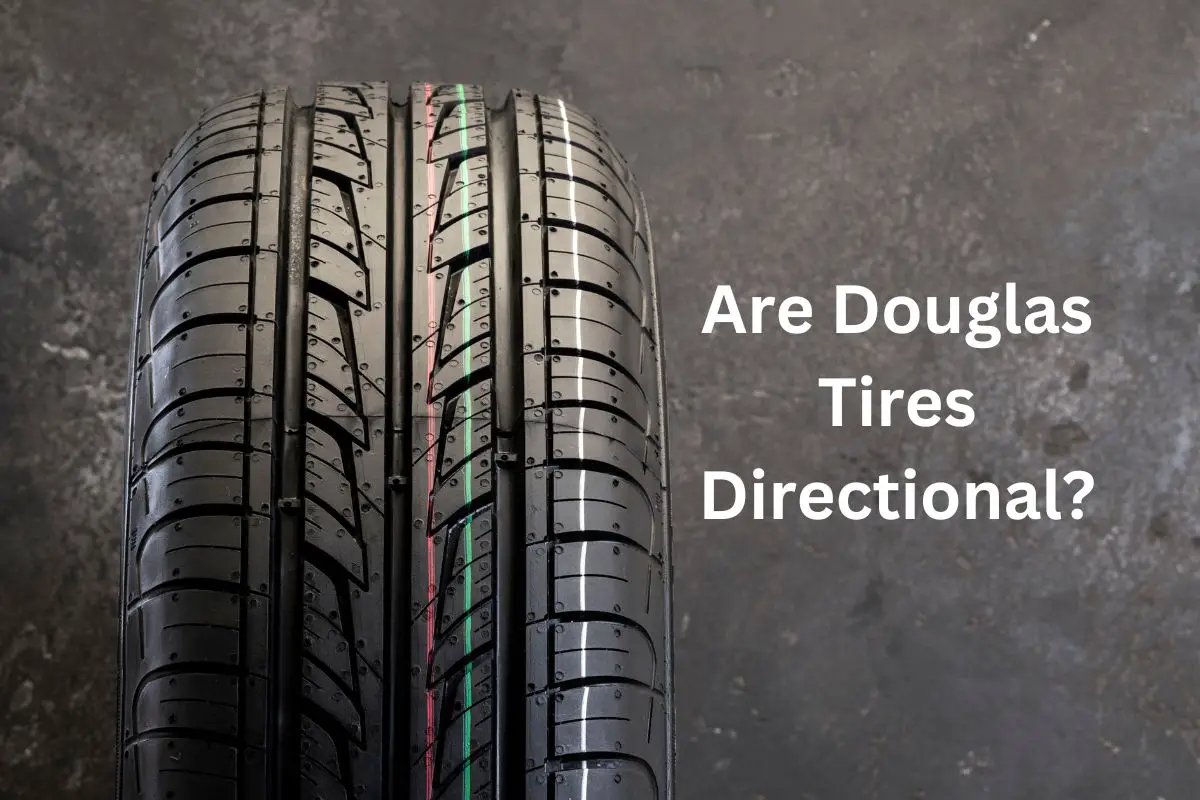Are Douglas tires directional? It’s a question that many tire shoppers find themselves asking. When it comes to choosing the right tires for your vehicle, there are a lot of factors to consider. Traction, performance, and durability all play a role in making an informed decision.
But what about the directionality of the tires? Does it really matter? In this blog post, we’ll delve into the world of Douglas tires and explore whether or not they are directional. By understanding this aspect of tire design, you’ll be better equipped to make an educated choice for your vehicle’s needs.
When it comes to tire performance, every detail counts. From tread patterns to sidewall construction, each element is carefully designed with specific purposes in mind. Directional tires have gained popularity in recent years due to their ability to enhance traction and handling in wet conditions. But do Douglas tires follow this trend?
We’ll uncover the truth behind their design and help you determine if they are indeed directional or not. So let’s dive in and discover what makes these tires unique and how they can benefit your driving experience!
Highlights:
- Directional tires enhance traction and handling in wet conditions
- They reduce the risk of hydroplaning for improved safety
- Proper installation and maintenance are crucial for optimal performance
What Are Directional Tires?
Directional tires are a type of tire designed to enhance traction and handling in wet conditions. They feature a tread pattern with V-shaped grooves that help channel water away from the tire’s contact patch, reducing the risk of hydroplaning.
These tires are optimized for forward motion, meaning they can only be mounted in one direction. Directional tires offer improved performance on wet roads but may not perform as well on dry surfaces. If you’re looking for enhanced safety and grip in rainy weather, directional tires might be worth considering for your vehicle.
Are Douglas Tires Directional?
Are Douglas Tires Directional? Yes, some models of Douglas tires are directional. Directional tires have tread patterns designed to rotate in one direction only, providing better traction and handling in wet conditions. It’s important to check the tire sidewall for arrows indicating the correct rotation direction during installation.
Also Read:Are Atlas Tires Quiet or Noisy?
Which Douglas Tire Models Are Directional?
Most tire brands have both directional and non-directional tires. Below is a list of some of the directional tire models from Douglas tires. Please note this list is not exhaustive.
Here are 5 Douglas tire models that are directional:
- Douglas Performance Tire
- Douglas All-Season Tire
- Douglas Xtra-Trac II Tire
- Douglas Ultra-High Performance Tire
- Douglas Sport Utility Tire
How Can I tell if My Douglas Tires Are Directionals
To determine if your Douglas tires are directional, look for an arrow or the word “rotation” on the sidewall. If present, it indicates that the tires are directional and must be mounted in a specific direction for optimal performance. Directional tires have tread patterns designed to enhance water evacuation and improve traction, making them ideal for wet road conditions. Remember to follow the manufacturer’s instructions when mounting or rotating directional tires to ensure safety and longevity.
If you can’t find any indication of directionality on your Douglas tires, they are likely non-directional. Non-directional tires can be mounted in any direction without affecting their performance. However, regular rotation is still recommended to promote even wear and extend tire life. Always consult your vehicle’s owner manual or a professional tire technician for specific guidance on tire maintenance and installation procedures.
Are Directional Tires Better?
Directional tires are a popular choice among drivers looking for enhanced performance and safety on the road. These tires are designed to rotate in one direction only, with specific tread patterns that help improve traction and handling. However, like any other tire type, directional tires have their own set of pros and cons.
- Pros of directional tires:
- Improved traction on wet roads
- Better water evacuation, reducing hydroplaning risk
- Enhanced handling and stability
- Reduced road noise
- Cons of directional tires:
- Limited rotation options (can only be rotated front to back)
- Potentially higher cost compared to non-directional tires
- Tread pattern can wear unevenly if not properly maintained or aligned
If you’re looking for improved performance and safety in wet conditions, directional tires may be the right choice for you. With their unique tread pattern designed to channel water away from the tire’s contact patch, these tires offer enhanced traction and reduced hydroplaning risk. Additionally, directional tires provide better handling and stability due to their optimized design. Another advantage is the reduction in road noise, resulting in a quieter ride.
However, it’s important to consider some potential drawbacks. Directional tires have limited rotation options as they can only be moved from front to back. This limitation may affect tire lifespan and evenness of wear if not properly managed. Additionally, directional tires might come with a slightly higher price tag compared to non-directional alternatives.
Also Read:Nexen Tire Chunking
Are Douglas Directional Tires More Expensive?
Looking for affordable tires? Wondering if Douglas directional tires are more expensive? We’ve got the answer! While prices can vary, Douglas directional tires are known for their budget-friendly options without compromising on quality. With a wide range of sizes and styles available, you can find the perfect fit for your vehicle at a competitive price. Don’t break the bank on tires – choose Douglas directional tires for reliable performance without breaking your budget. Shop smart and save money today!
Directional vs non Directional Tires: Key Differences
Directional tires and non-directional tires have distinct characteristics that make them suitable for different driving conditions. Directional tires are designed with a specific tread pattern that is intended to enhance water evacuation, providing better traction on wet roads.
The tread pattern features grooves that are angled in one direction, allowing the tire to effectively disperse water and reduce the risk of hydroplaning. This makes directional tires an excellent choice for areas with frequent rainfall or wet road conditions.
On the other hand, non-directional tires have a tread pattern that can be mounted in any direction on the vehicle. They offer more versatility as they can be rotated to different positions on the car, promoting even wear and extending their lifespan.
Non-directional tires typically have a symmetrical tread design with grooves arranged in various patterns across the tire’s surface. This design provides good all-around performance, making them suitable for both dry and wet road conditions.
Why Are Tires Directional?
Tires are directional to optimize performance and safety. The tread pattern is designed to channel water away from the tire, reducing hydroplaning risk.
This ensures better traction and handling in wet conditions, making directional tires a smart choice for those seeking improved safety on the road.
Leading to a smoother and safer ride.
Also Read:Are Atlas Tires Directional?
Final Thoughts
In conclusion, it is clear that Douglas tires offer both directional and non-directional options to cater to different driving conditions. For those who frequently encounter wet roads or heavy rainfall, the directional tires with their specialized tread pattern are an ideal choice. They effectively disperse water, reducing the risk of hydroplaning and providing better traction in wet conditions.
On the other hand, non-directional tires offer versatility and all-around performance. With a symmetrical tread design, they can be mounted in any direction on the vehicle and rotated to different positions for even wear. This makes them suitable for various road conditions, whether dry or wet.
No matter your driving needs or preferences, [brand name] has a range of high-quality Douglas tires available for you to choose from. Explore our selection today and enjoy enhanced performance and safety on the road with our reliable tire options.
This post contains affiliate links. Read the full disclosure here.


I am passionate about all things automotive and have a deep understanding of the topic. As a mechanic, I use my free time to share knowledge of everyday challenges that any car owner can experience – helping you make informed decisions about tires.

